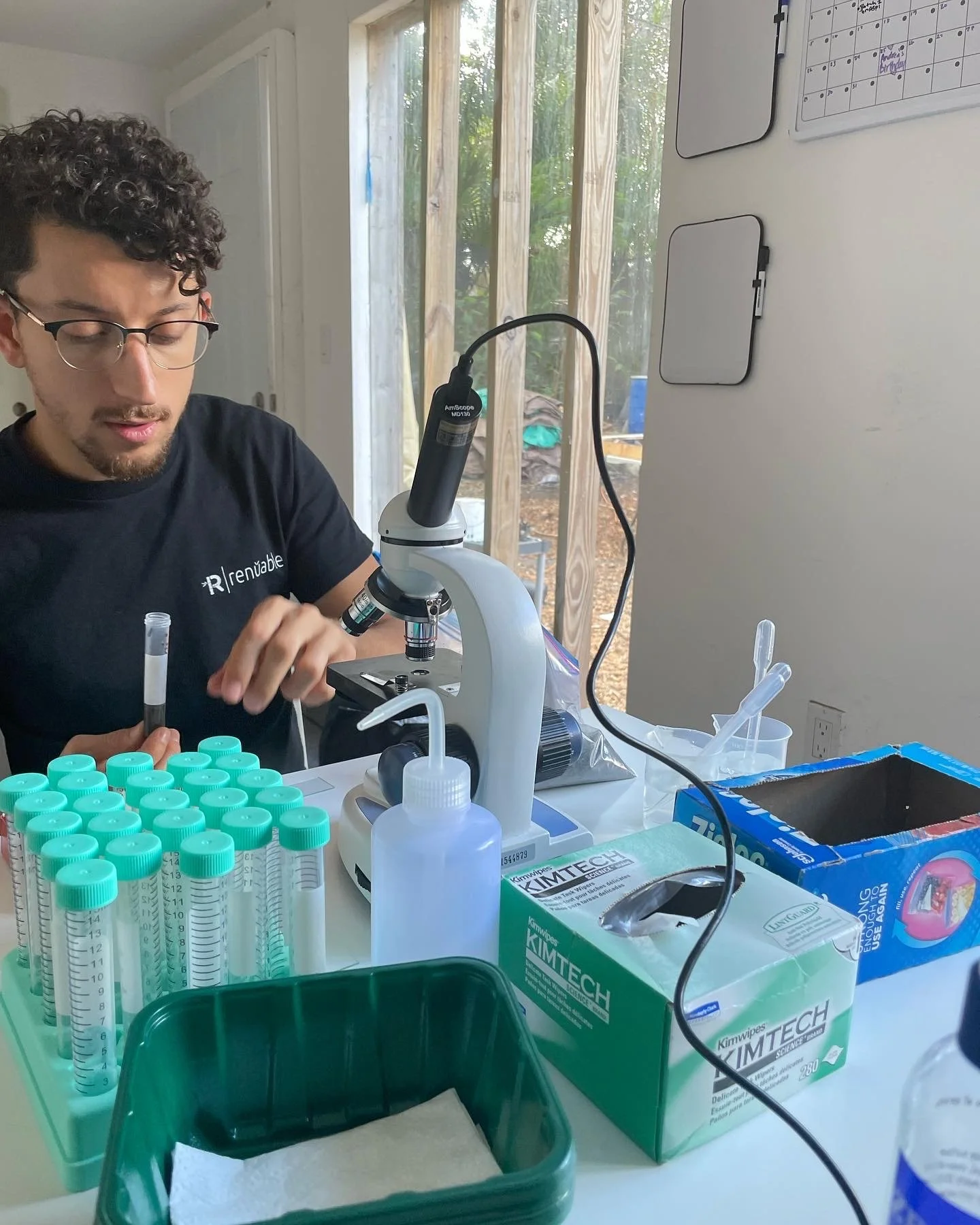Composting...is science?
Yeah, we think so.
Composting, the seemingly simple act of transforming organic waste into nutrient-rich soil, has been practiced for centuries. But is composting just a traditional backyard practice or what is the science behind it? In this post, we will delve into the fascinating world of composting and explore why we believe that composting is indeed a science-backed process. From understanding the underlying biological principles to examining the metric-backed environmental benefits, let's uncover the scientific aspects that make composting an essential and sustainable practice.
The Science of Composting
At its core, composting is a biological process driven by science. Microorganisms, such as bacteria, fungi, and protozoa, play a vital role in breaking down organic matter into simpler components. This microbial activity is fueled by a delicate balance of carbon and nitrogen, represented by the carbon-to-nitrogen ratio (C/N ratio). Just like a chemist carefully measures ingredients for a reaction, composters aim to maintain the right C/N ratio to create an ideal environment for microorganisms to thrive.
Temperature is another key scientific aspect of composting. As microorganisms work their magic, heat is generated, leading to temperature changes in the compost pile. Monitoring and managing these temperature fluctuations are akin to a scientist observing a controlled experiment. Ensuring the compost piles follow the desired range between 131-160 degrees farenheit is required to kill harmful pathogens while not being too hot for the beneficial organisms to survive. Adjusting the compost pile's size, turning it regularly, and ensuring proper aeration to keep oxygen levels in an appropriate range are all scientific practices that optimize decomposition, increase safety and efficiency.
The Artful Application of Science
While composting is rooted in science, it also allows for a touch of artistry. Composters can experiment with different materials, ratios, and methods to create customized compost blends tailored to specific gardening needs. Like a skilled chef combining various ingredients to craft a delectable dish, composters creatively mix "green" and "brown" materials to produce compost that perfectly nourishes their plants.
Additionally, composting is a science-based art when it comes to troubleshooting. If a compost pile isn't breaking down as expected, composters need to diagnose the issue just like a scientist would troubleshoot an experiment. Whether it requires adjusting moisture levels, adding more carbon-rich materials, or improving aeration, the art lies in observing, analyzing, adjusting and learning from the composting process to achieve optimal results.
The Environmental Impact
The undeniable science of composting extends beyond the compost pile and has significant environmental benefits. By diverting organic waste from landfills, composting reduces methane emissions, a potent greenhouse gas. This simple act of composting is working to combat climate change one (properly managed) compost pile at a time.
Moreover, the end product of composting – compost- is nutrient-rich soil amendment which enriches soil and promotes healthier plant growth. This environmentally-friendly soil amendment reduces the need for watering, synthetic fertilizers and harmful pesticides, supporting sustainable and regenerative agriculture. In a world where environmental conservation is at it's most crucial time, composting stands as a testament to the power of combining science and nature for restoring and preserving our planet's natural balance.
So, composting... IS science!
Yes, without a doubt. While composting might seem like a basic practice, it is deeply rooted in scientific principles. The biology of microorganisms, the chemistry of the C/N ratio, and the physics of preferential air channels and temperature changes are all integral to the composting process. Yet, within this scientific framework, composting also leaves room for creativity and innovation, making it an artful endeavor as well.
As we embrace composting as a regular part of our daily lives, we not only nurture our gardens but also nurture the planet. By reducing waste, mitigating greenhouse gas emissions, and improving soil health, composting becomes a powerful tool in the fight against climate change and environmental degradation.
So, the next time you start a compost pile or add kitchen scraps to your Renüable Community Compost bin, remember that you're not just partaking in a simple act – you are a compost scientist and artist, contributing to a sustainable future for generations to come. Let's continue to compost and witness how this beautiful science-based art shapes a greener world.


